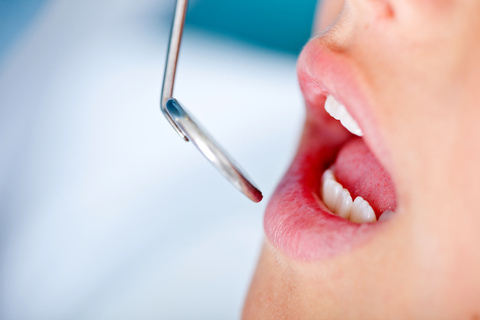May 27th, 2024

One of the greatest features our team at Pediatric Dentistry of Spartanburg offers is the ability to see first-hand how we can help our patients. While X-rays help us detect any problems in your mouth and give us valuable information on what is bothering you, they often don’t give Dr. HJ Turner and Dr. DJ Turner a complete view of everything that is going on inside your mouth. With the use of an intraoral camera, we can see every aspect of your teeth and mouth with incredible detail, uncovering cracked or fractured teeth, excessive wear, carious lesions, cavities, or other issues that may be hidden. When we can discover oral problems early on, your treatment is much less invasive and often saves you money down the road.
An intraoral camera allows Dr. HJ Turner and Dr. DJ Turner to view clear, precise images of your mouth, teeth, and gums and allows us to make an accurate diagnosis. With clear, defined, enlarged images, Dr. HJ Turner and Dr. DJ Turner and our team see details that standard mirror examinations may miss. It’s much easier to understand what is happening in your mouth if you can see the problem on a computer monitor, and it means faster diagnosis and less chair-time for our patients!
Intraoral cameras are small, about the size of a dental mirror, and emit a light onto the tooth. The tooth will emit a color that lets Dr. HJ Turner and Dr. DJ Turner determine if the tooth is healthy or diseased. Intraoral cameras also allow us to save your images on our office computer to provide a permanent record of treatments. These treatments can be printed for you, other specialists, and your lab or insurance companies.
For any questions about the intraoral camera, we encourage you to ask Dr. HJ Turner and Dr. DJ Turner or our team during your or your child’s next visit or by giving us a call at our convenient Spartanburg, SC office.
May 8th, 2024

"Motherhood: All love begins and ends there." - Robert Browning
We would like to take this moment to thank all the great moms out there for being so great during their child’s visits to Pediatric Dentistry of Spartanburg. Whether it’s driving their kids to regularly scheduled appointments or for “being there” while their child is treatment, the moms who come to our office are all stellar individuals, so Dr. HJ Turner and Dr. DJ Turner and our entire staff would like you to know that we appreciate you all!
Happy Mother’s Day and enjoy your special day!
April 24th, 2024

Our team at Pediatric Dentistry of Spartanburg hears this question a lot. According to our friends at the American Academy of Pediatric Dentistry (AAPD), pediatric dentistry is “an age-defined specialty that provides both primary and comprehensive preventive and therapeutic oral healthcare for infants and children through adolescence, including those with special healthcare needs.”
Pediatric dentists, such as Dr. HJ Turner and Dr. DJ Turner, are dedicated to the oral health of our young patients from infancy through their teen years. Our team at Pediatric Dentistry of Spartanburg has the experience and qualifications to care for your child’s teeth, gums, and mouth throughout his or her various stages of childhood.
Pediatric dentists complete at least four years of dental school, including an additional two additional years of residency training in dentistry for infants, children, teens, and children with special needs.
At Pediatric Dentistry of Spartanburg, we know children are not born with a fear of the dentist, but they can fear the unknown. And that is why Dr. HJ Turner and Dr. DJ Turner and our team know how to examine and treat children in ways that make them relaxed and comfortable.
To learn more about pediatric dentistry, or to schedule your child's next visit at our Spartanburg, SC office, please give us a call today!
April 17th, 2024

The idea for Earth Day was the brainchild of Gaylord Nelson, a senator from Wisconsin. He envisioned an Earth Day that would be a kind of environmental teach-in. The first Earth Day celebration took place on April 22, 1970, and a surprising 20 million people participated on that day. Ultimately, it became the largest organized celebration in US history.
Earth Day Over the Years
Over the years, the recognition of the day, and the number of people celebrating it all over the world, turned Earth Day into an international celebration. Because it is celebrated throughout the world, it is not only the largest international environmental observation, but it is also more widely celebrated than any other environmental event in the world. Today, Earth Day is celebrated in 175 countries where over 500 million people participate in celebrations.
The Earth Day Movement
The Earth Day movement is credited with developing the idea that people should “think green”. It encouraged congress to enact laws, including one that resulted in the creation of the Environmental Protection Agency. It also inspired the passage of the Endangered Species Act.
The Five R's and Their Importance
- Reduce – Reduce by avoiding unnecessary purchases. Reduce your use of materials that wind up in landfills. Reduce the use of chemicals around your house. Reduce your use of disposable bags, plates, cups, eating utensils, and batteries.
- Reuse – Instead of using plastic bags for your groceries or purchases, bring your own reusable bags. When you go to buy coffee at Starbucks, take a travel mug so you don't have to get your coffee in a disposable paper cup. Instead of storing food in disposable refrigerator containers, buy containers that can be washed and reused. Don't use regular batteries. Whenever possible, opt for rechargeable batteries that you can reuse.
- Recycle – Most cities offer a recycling program to collect used bottles, cans, and newspapers. Recycling includes collecting recyclable materials that would otherwise be considered waste, sorting and processing recyclables into raw materials such as fibers and manufacturing raw materials into new products.
- Re-buy – Make an effort to purchase things that are made through recycling. When purchasing furniture, look for items that are made from reclaimed wood. When buying paper for kids school work, computer printer paper, holiday cards, or anything else, make a point of purchasing recycled paper products. Instead of buying clothing at full retail price, shop for second hand clothing. You will save a lot of money by doing so!
- Rethink – Rethink the way you do things so that you do them in an eco-conscious way at all times. Instead of driving to work alone, consider taking the bus or going in a carpool. Walk or ride your bike when you're only going a short distance. Plan your shopping trips and errand runs so that you can do everything on one day, and do it in a way where you can save time and gas.
Other ways to "think green" include growing your own food, composting yard waste and food scraps, or by participating in local recycling programs. Join a group like Freecycle so you can share your unneeded and unwanted possessions with people who can use them. Likewise, you'll be able to get things you need or want for free.
Earth Day teaches people that the planet belongs to everyone, so everyone is equally responsible for protecting it. Although Earth Day is an environmental celebration, our team at Pediatric Dentistry of Spartanburg wants to remind you that you don't have to wait until then to make changes that will allow you and your family to live a greener life.
Happy Earth Day from the team at Pediatric Dentistry of Spartanburg.











 Website Powered by Sesame 24-7™
Website Powered by Sesame 24-7™
